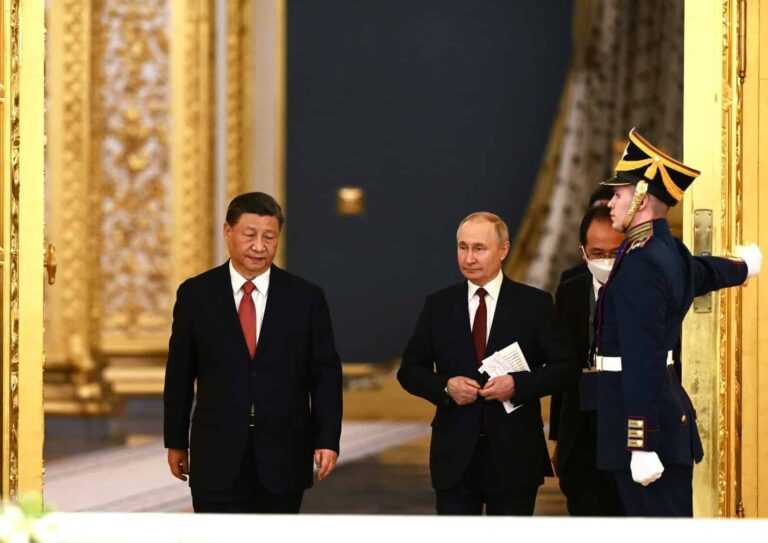In a world interwoven by intricate connections and propelled by dynamic transformations, the prominence of geopolitical risks has surged to unprecedented heights. These risks encapsulate a diverse array of elements capable of unsettling global equilibrium and reshaping the destiny of nations.
Grasping the intricacies and vigilantly tracking these risks assumes paramount importance for governments, enterprises, and individuals alike. Within the confines of this article, we shall embark upon an exploration of the preeminent geopolitical risks projected to mold the fabric of our global panorama in the year 2023 and beyond.
Table of Contents
1. The impact of global power shifts
The rise of China and its implications
Amidst China’s resolute ascent on the global stage, its ascendant stature resonates across economic, political, and military realms. With each passing moment, the influence wielded by China burgeons, casting a profound impact on the world stage.
The persistent trade disputes and technological rivalries that unfold between China and the United States possess the latent capacity to burgeon into more extensive conflicts, engendering reverberations of paramount significance. The geopolitical ramifications engendered by China’s upward trajectory are far-reaching, instigating consequential shifts in regional power dynamics, recalibrations of trade alliances, and profound reassessments of military strategies.
The changing role of the United States
The United States, traditionally considered the global superpower, is experiencing changes in its domestic priorities and foreign policy approach. With an emphasis on domestic issues and a more inward-looking approach, the United States may reduce its engagement in certain regions or reevaluate its alliances. This shift could create power vacuums and alter geopolitical dynamics in various parts of the world.
Regional power dynamics
Beyond the rise of China and changes in the United States, other regional powers such as Russia, India, and Brazil are also vying for influence. Their ambitions and actions in their respective regions can trigger tensions and geopolitical risks. Competing interests, territorial disputes, and resource competition may lead to conflicts or strained diplomatic relations, affecting global stability.
2. Socioeconomic disparities and political instability
Economic inequality and social unrest
Widening socioeconomic disparities within and between countries can fuel political instability and social unrest. The growing gap between the rich and the poor, coupled with limited access to essential resources and opportunities, can trigger protests, demonstrations, and even revolutions.
Such unrest can have far-reaching geopolitical consequences, as it may lead to regime changes, mass migration, and the emergence of extremist movements.
Corruption and governance challenges
Corruption remains a pervasive issue in many countries, undermining governance, economic development, and social cohesion. Corrupt practices divert resources away from public welfare, erode trust in institutions, and hinder effective policymaking.
The prevalence of corruption can fuel geopolitical risks by exacerbating socioeconomic disparities, eroding state legitimacy, and fostering illicit networks that perpetuate instability.
3. Climate change and environmental threats
Rising sea levels and coastal vulnerability
Climate change poses significant geopolitical risks, particularly in regions susceptible to rising sea levels and increased coastal vulnerability. Small island nations and low-lying coastal areas face the threat of displacement, loss of territory, and conflicts over resources.
The geopolitical implications of climate change extend to migration patterns, resource competition, and potential conflicts over strategic locations.
Resource scarcity and competition
The depletion of natural resources, such as freshwater, arable land, and minerals, can intensify geopolitical competition. As demand for resources rises, countries may resort to aggressive strategies, such as resource extraction, territorial claims, or disputes over control.
This resource-driven competition can strain diplomatic relations, heighten tensions, and escalate conflicts, especially in resource-rich regions.
4. Cybersecurity and technological challenges
State-sponsored hacking and cyber warfare
The digital realm has become a new battleground for geopolitical conflicts. State-sponsored hacking, cyber espionage, and cyber warfare pose significant threats to national security and global stability.
Nations engage in covert cyber operations to gain strategic advantages, disrupt critical infrastructure, and compromise sensitive information. These activities can lead to increased tensions, retaliatory actions, and potential escalation into full-blown conflicts.
Emerging technologies and their risks
The rapid advancement of technologies like artificial intelligence, autonomous systems, and biotechnology presents both opportunities and risks. The misuse or unintended consequences of emerging technologies can disrupt global order and create new geopolitical risks.
Issues related to data privacy, weaponization of technologies, and ethical considerations pose challenges that require international cooperation and regulatory frameworks.
5. Conflicts and terrorism
Proxy wars and armed conflicts
Proxy wars, where external powers support opposing factions in a conflict, continue to pose significant geopolitical risks.
Ongoing conflicts in regions such as the Middle East, Africa, and Eastern Europe have the potential to escalate or involve multiple actors, leading to increased instability and humanitarian crises. The consequences of proxy wars include population displacement, resource exploitation, and the proliferation of extremist ideologies.
Extremism and radicalization
The rise of extremism and radicalization remains a pressing concern globally. Extremist groups, fueled by ideological motivations and socio-political grievances, can disrupt stability, provoke violence, and undermine the social fabric of societies.
Countering radicalization through comprehensive strategies that address root causes, promote inclusion, and ensure effective governance is crucial to mitigating geopolitical risks associated with extremism.
6. Pandemics and health crises
Global health security and epidemics
The COVID-19 pandemic has underscored the interconnectedness of health and geopolitics. The emergence of infectious diseases and the spread of epidemics can have significant geopolitical implications. Health crises can disrupt economies, strain healthcare systems, trigger social and political unrest, and exacerbate existing geopolitical fault lines.
Strengthening global health security, early detection, and effective response mechanisms are essential to mitigating the risks posed by pandemics.
Healthcare infrastructure and preparedness
Investing in robust healthcare infrastructure and preparedness is crucial in managing health-related geopolitical risks. Weak healthcare systems, inadequate resources, and lack of preparedness can amplify the impact of pandemics and other health emergencies.
Collaborative efforts to enhance healthcare infrastructure, ensure access to vaccines and treatments, and promote international cooperation in times of crisis are vital for addressing geopolitical risks arising from health emergencies.
Read also: New Covid wave in China, 65 million cases per week expected in June












